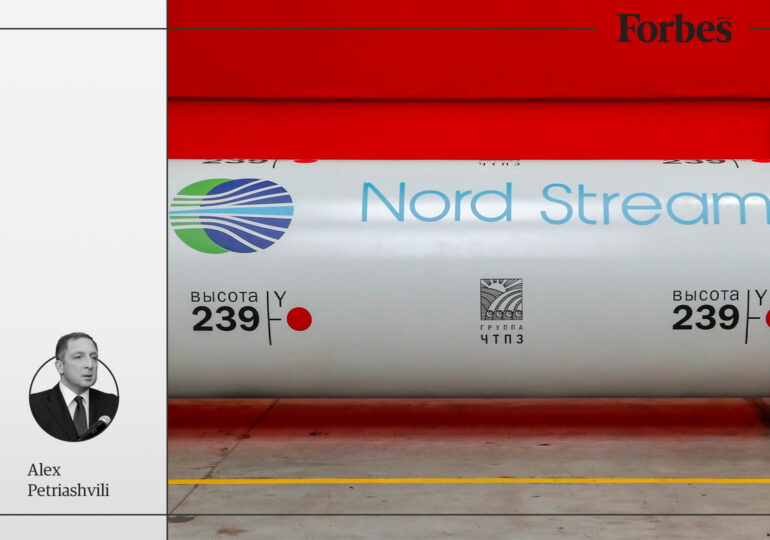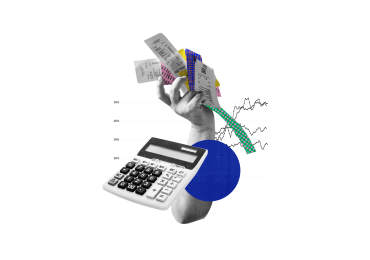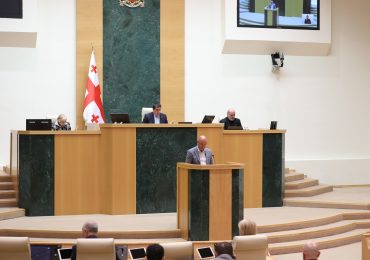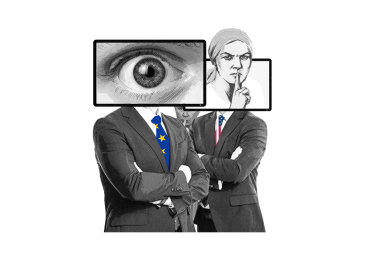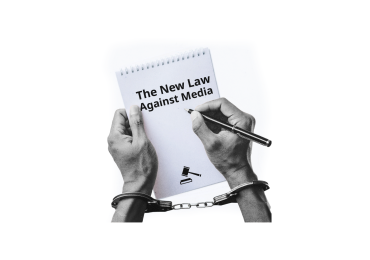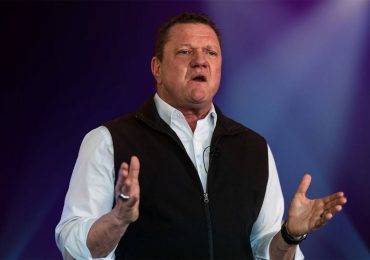On 10th September 2021, at 08:45 a.m. Moscow time, Gazprom CEO Alexey Miller announced the completion of the Nord Stream 2 gas pipeline.
Construction of the 1,280 km pipeline, which runs under the Baltic Sea and is due to supply Europe with natural gas from Russia, proceeded relatively smoothly until the imposition of sanctions by the administration of the 45thPresident of the United States in late 2019. The sanctions applied to any company that helped Gazprom complete the pipeline. Although around 85% of the works had already been carried out by then, the Swiss construction company building the pipeline immediately declined to finish the project. In 2020, Russia moved its ships to the Baltic Sea to push the project over the finish line. Donald Trump responded by placing sanctions on the vessels, as well as on anyone who conducted financial transactions with companies involved in the construction process. Apart from Gazprom, the Nord Stream 2 consortium also included German firms Wintershall Dea and Uniper, OMV of Austria, and AngloDutch giants Shell. Naturally, Mr Trump’s aggressive stance was unacceptable and problematic for the companies and countries involved in the €11 billion projects.
Then came the U.S. presidential election that was won by the Democrat Joe Biden. Initial statements by the incoming administration did not bode well for Nord Stream 2, Russia, or Germany. At the same time, Mr Biden was immediately keen to show the world that the United States intended to defuse tensions and normalize relations with their European partners after the stormy years under Donald Trump. It soon became evident that the Biden administration was willing to go a long way to improve relations with Germany. The first sign of this came in the form of Mr Biden’s move to revoke his predecessor’s decision to withdraw the U.S. military contingent from Germany. This move was met with little resistance or surprise. As time went on, it became increasingly clear that the White House would also make a decision regarding the Nord Stream 2 project that would displease not only Ukraine, Poland, the Baltic States, and the U.S. Republican Party, but also influential people within Mr Biden’s own party.
Unfortunately, everything that was expected to happen did happen. Prior to the G7-NATO-EU summit, the U.S. government lifted sanctions against the pipeline operator Nord Stream AG and its CEO, the former Stasi officer Matthias Warning. On 11th July, during her farewell visit to Washington as Chancellor of Germany, Angela Merkel settled all remaining issues regarding the completion and launch of Nord Stream 2 with Joe Biden.
Later, when Mrs Merkel and Vladimir Putin met in Russia, the main topic on the table was the launch of the pipeline and the uninterrupted supply of Russian gas to Europe via Ukraine. Only then did the German Chancellor travel to Ukraine, where she refused to give President Volodymyr Zelensky any guarantees about the extension of the gas transit agreement between Ukraine and Russia beyond 2024. As Mrs Merkel was visiting Kyiv, the Russian government announced that it would only consider extending the agreement in case of advance procurement of Russian natural gas by European countries. The other condition was that the Ukrainians would “behave themselves”. And there we have it! The Merkel government could hardly have gifted Moscow a stronger position. We can all guess what the Kremlin means when it talks about countries behaving themselves, but in case of any doubt, it will be left to the Russians to decide what constitutes good behaviour. Meanwhile, Europe’s dependence on Russian natural gas will increase even further. Russian gas already accounts for about a third of the total consumed in Europe. On top of that, Nord Stream 2 will deliver an additional 55 billion cubic meters to the continent each year. It will become even more difficult for Europeans to free themselves from the shackles of Gazprom.
Although the German regulator is yet to give the green light for the launch of the pipeline and issue the necessary certificates, any delays to this end are unlikely. The last remaining potential obstacle to Nord Stream comes in the form of EU competition law, based on which Gazprom must have a domestic competitor capable of supplying the EU with Russian gas. Poland plans to continue the fight down this route and has already won international arbitration against Russia in the past. However, the legal process will take years, while Nord Stream 2 may be able to start delivering natural gas to Europe from 1st October. Although it could take the German regulator another two months to approve the project, there are loopholes that Russia will be able to exploit. According to international law, natural gas can be supplied prior to the completion of the mandatory procedures. One way or another, Nord Stream 2 is most likely to begin operating by the end of the year. After all, Europeans will want to stock up on natural gas for the winter.
German parliamentary elections are due to take place in less than two weeks. The Social Democrats are currently well ahead of Angela Merkel’s CDU in the polls, followed by the Greens. Out of these three parties, only the Greens leader Annalena Baerbock has been critical of the Nord Stream 2 project. In response, the Russian propaganda machine and troll/bot factory conducted a relentless campaign against Ms Baerbock, eliminating her party’s chances of winning the election. Even if the Greens were to become part of a coalition government and take control of the foreign affairs portfolio, they are unlikely to provide effective opposition to the operation of the Russian pipeline under the current circumstances.
Numerous parties have contributed to the events that will ensure the following:
- The territorial integrity and national interests of Ukraine will be further threatened by Russia through the Nord Stream 2 pipeline;
- The European Union will remain dependent on Russian energy for a long time;
- The amount of energy dollars flowing into the Russian budget will increase substantially (the price of natural gas reached a record high of $696 per 1,000 m3 this year);
- Most importantly, Russia will have serious political leverage against countries that are trying to develop independently and democratically (e.g., Ukraine, Georgia, and Moldova), as well as against those who support these countries.
Numerous people have made all of this happen, but I think the Nord Stream 2 project deserves to be called the Angela Merkel Pipeline. There is no doubt that Mrs Merkel has achieved a lot for her country during her sixteen years as Chancellor. She will go down in history as one of the strongest and most successful German leaders. And yet…
